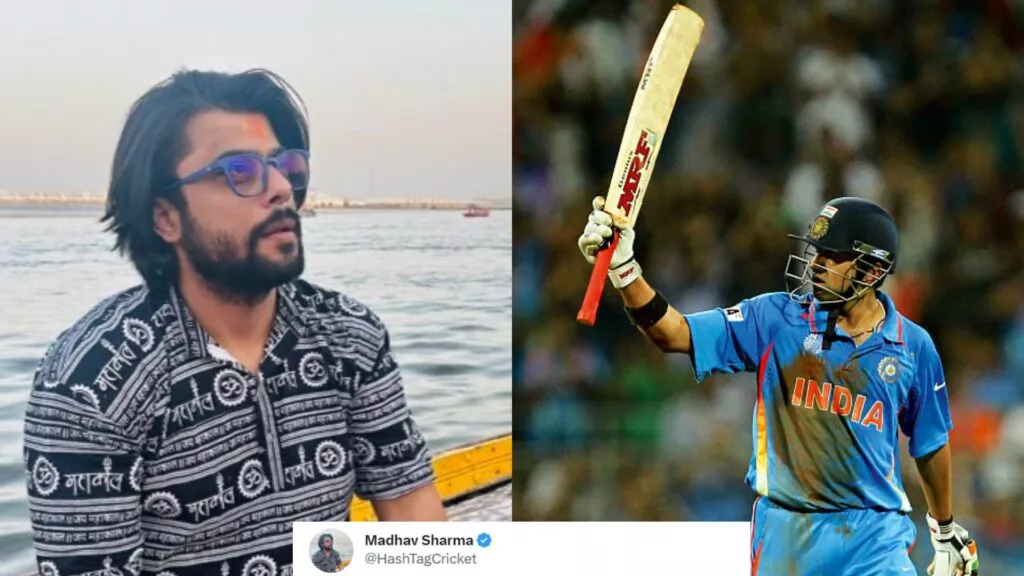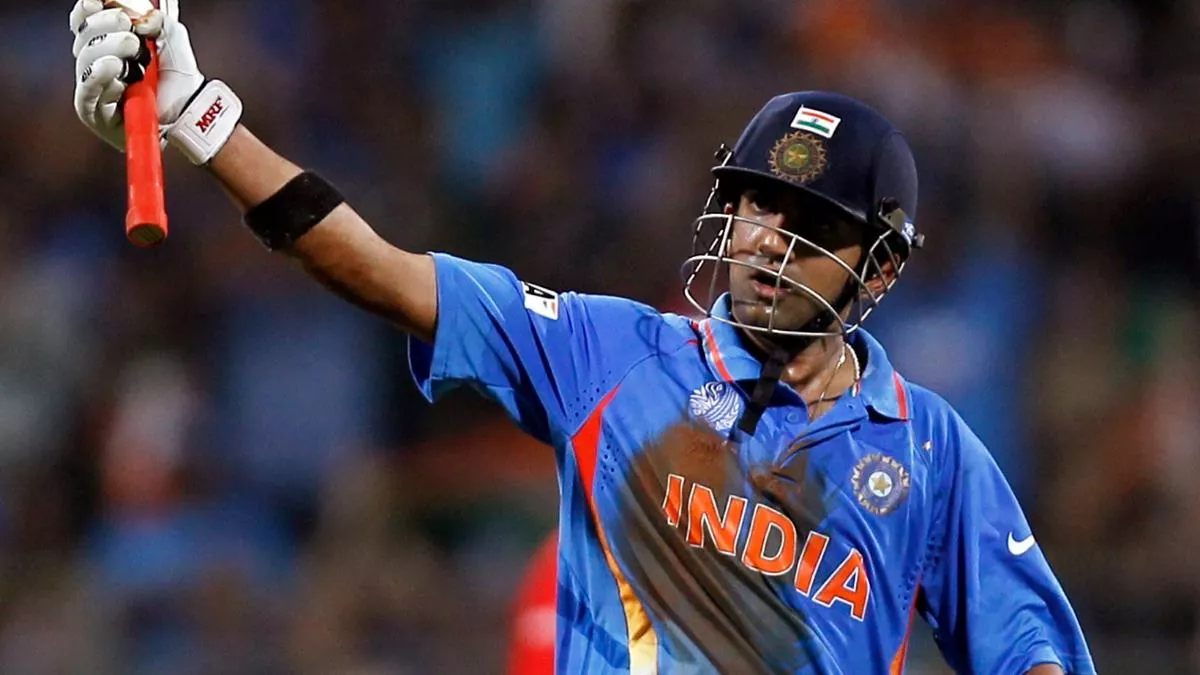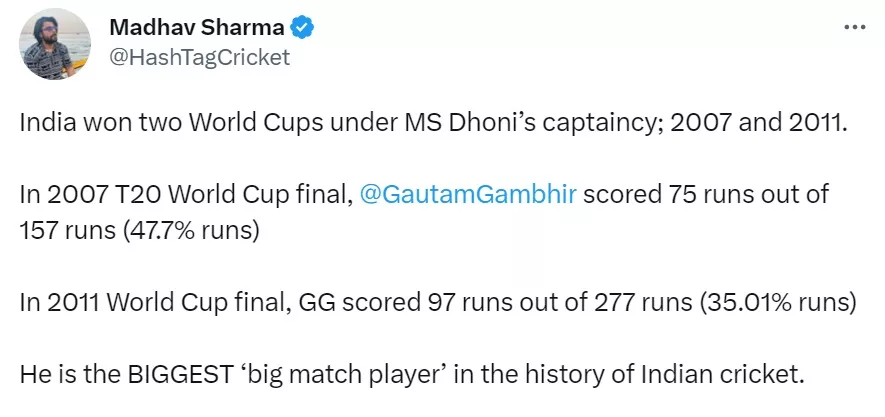Gautam Gambhir, India’s former frontman in the World Cup finals, is someone who never disappointed his fans in the big games. No one would forget the kind of force Gambhir was and the role that he played in helping the Indian cricket team in lifting the prestigious silverware not once but twice.
Gautam Gambhir, the unsung hero of the Indian cricket team, is hailed as a big-match player. Whenever the situation was tough, he would be there for the men in blue, taking over the reins himself and delivering when it mattered the most.
Gautam Gambhir’s efforts in the 2007 World Cup final
Gambhir was the top-scorer for India in the 2007 World Cup final that India won. He smashed a stunning knock of 54-ball 75 against Pakistan in the summit clash of the inaugural WT20 in 2007. All thanks to his contributions, India won the World Cup by 5 runs.
Gambhir’s heroics in the 2011 World Cup final
While the memories of Dhoni’s match-winning six are etched in everyone’s memories, on the other hand, Gambhir’s soiled shirt and his valient efforts live rent-free in the hearts of the cricket fans in India.
Stitching a significant partnership with Virat Kohli first and skipper MS Dhoni next, Gambhir kept the scoreboard ticking to ensure that team India wasn’t far behind in the chase. He played a brave knock of 97 runs, that was laced with 9 boundaries. Gambhir’s precious knock is still remembered by heart by fans across the world.
The Biggest ‘Big Match Player’
On Thursday, the editor-in-chief of The Cricket Lounge, Madhav Sharma penned a beautiful tweet dedicated to the man himself – Gautam Gambhir. In his Tweet, Madhav hailed Gambhir for his contributions to the big game. He highlighted why Gambhir is the biggest ‘big match player’ in the history of Indian cricket. He wrote:
“India won two World Cups under MS Dhoni’s captaincy; 2007 and 2011. In 2007 T20 World Cup final, @GautamGambhir scored 75 runs out of 157 runs (47.7% runs) In 2011 World Cup final, GG scored 97 runs out of 277 runs (35.01% runs). He is the BIGGEST ‘big match player’ in the history of Indian cricket.”
Check out the tweet:



